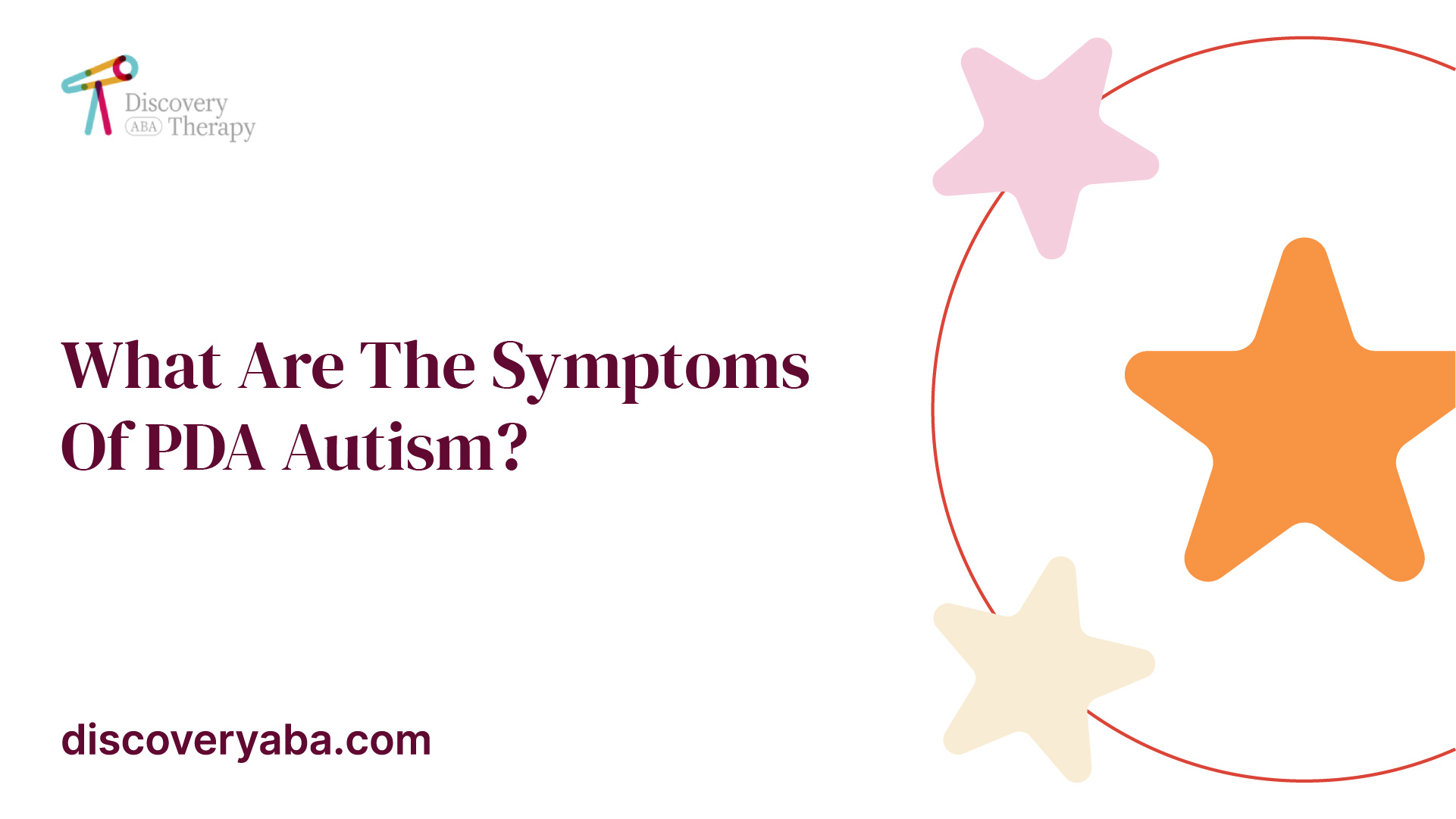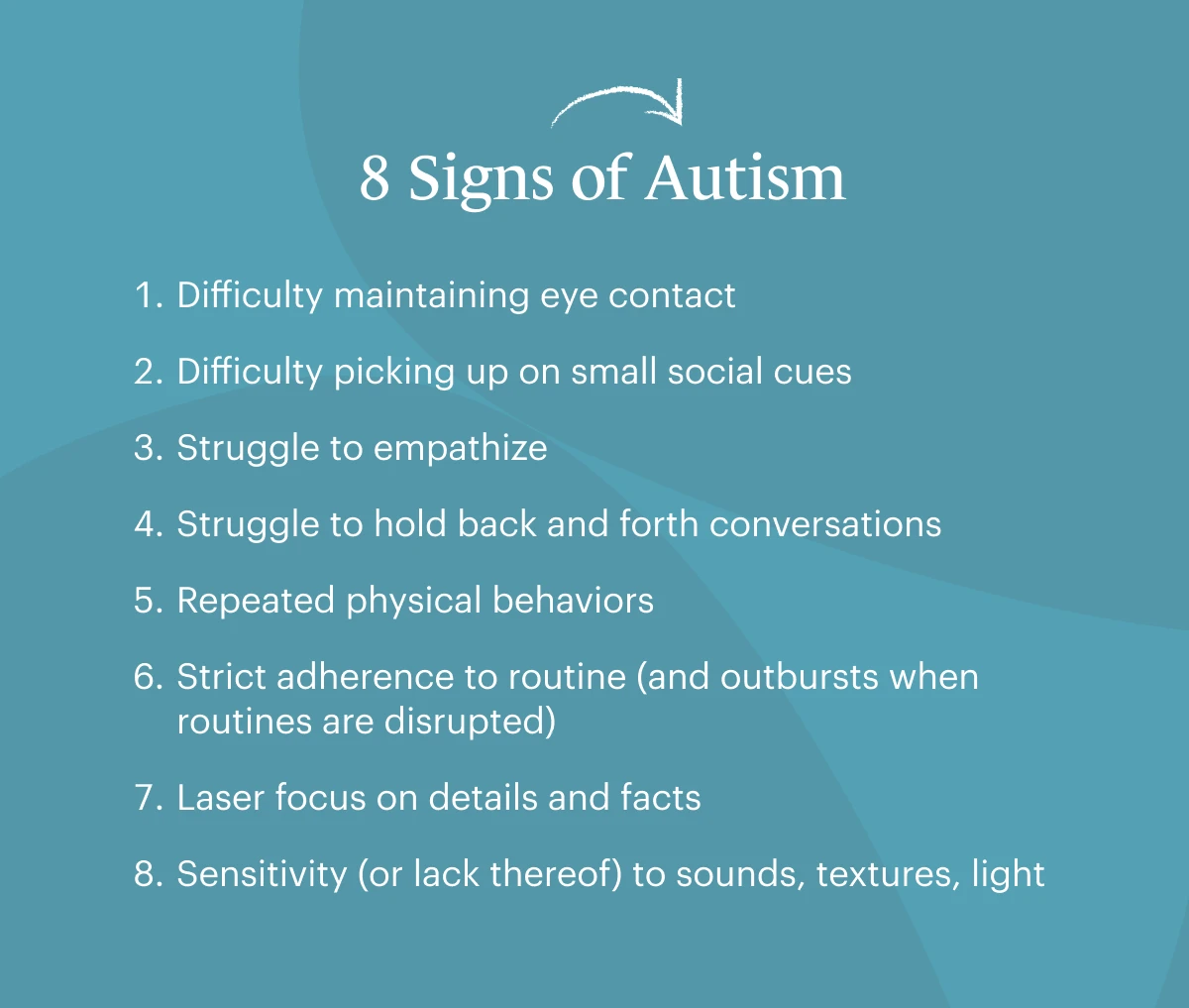Secret Indications and Signs to Recognize in Individuals With Behavioral Autism
When you run into somebody with behavioral autism, acknowledging essential signs and symptoms is crucial. Additionally, sensory sensitivities can lead to frustrating experiences.
Difficulties in Social Interactions
When you connect with somebody on the autism range, you could observe they have a hard time with social cues and interaction. These obstacles can make social communications really feel frustrating for them.
Additionally, you may find that they choose regimens and familiar settings, which can restrict their determination to take part in brand-new social situations. They may speak concerning their interests in terrific information without observing if you're interested when they do involve. This can result in prejudiced discussions that leave you really feeling separated. Comprehending these difficulties can aid you approach interactions with empathy and patience, promoting a much more comfy setting for both of you.
Trouble With Verbal and Non-Verbal Interaction

Acknowledging these signs is crucial, as it assists you far better assistance and engage with people on the autism spectrum. By comprehending their interaction obstacles, you can foster a lot more meaningful connections and supply an extra helpful setting.
Repeated Habits and Regimens
Interaction challenges commonly accompany other indicators of autism, such as repetitive habits and a strong preference for routines. You might see that people with autism typically participate in certain, repeated actions, like hand-flapping, shaking, or duplicating phrases. These behaviors can offer convenience and a feeling of control in an often overwhelming world.
When they comply with a structured routine,Regimens are equally crucial; lots of individuals flourish. You might locate that adjustments to these regimens can bring about substantial distress. For example, if they have a daily ritual of consuming morning meal at a certain time or complying with a specific path to school, any interruption can trigger stress and anxiety.
Acknowledging these patterns aids you comprehend their habits and provide assistance. By fitting their demand for regular and enabling recurring activities, you can create a more comfortable setting that relieves their obstacles.
Sensory Sensitivities

Common Sensory Triggers
Sensory sensitivities can considerably impact daily life for individuals with autism, as particular stimulations commonly set off frustrating reactions. Common sensory triggers include loud sounds, intense lights, and solid scents. Recognizing these triggers can aid you handle your setting better.
Behavioral Actions Clarified
Understanding your behavior actions to sensory level of sensitivities is essential, as they frequently reveal exactly how you engage with the world. You could discover that certain sounds, lights, or appearances overwhelm you, leading to anxiety or pain. When confronted with these stimuli, you could withdraw, cover your ears, or even respond boldy. These actions aren't simply traits; they're your method of coping with overstimulation. You may likewise discover on your own looking for certain sensory experiences, like deep pressure or peaceful atmospheres, to help ground on your own. Acknowledging these patterns helps you recognize your requirements better and can lead exactly how you communicate them to others. By recognizing your sensory sensitivities, you can work in the direction of creating a setting that feels much more workable and comfy for you.
Coping Methods Introduction
Recognizing your website here sensory sensitivities is just the first action; currently it's time to discover coping strategies that can aid you take care of those experiences properly. Beginning by producing a sensory toolkit customized to your demands. Establishing an organized regimen can likewise supply predictability, lowering anxiety around sensory overload.
Restricted Passions and Emphasis
While lots of individuals develop a wide array of rate of interests, those with autism often show restricted interests and an extreme emphasis on particular topics. You could discover that someone with autism can invest hours diving into their favored topic, whether it's a specific kind of train, a details flick, or a scientific principle. This intense emphasis isn't just a pastime; it can become a main part of their identification and social interactions.
You might discover that conversations focus on these interests, and they may have a hard time to participate in wider subjects. For them, these concentrated rate of interests give comfort and a feeling of mastery. While it is very important to motivate exploration of brand-new topics, valuing their enthusiasms is just as essential. By recognizing and acknowledging these limited passions, you can promote a helpful environment where they feel valued and recognized, allowing for more purposeful connections and interactions.
Emotional Policy Problems
Individuals with autism typically deal with difficulties in psychological law, which can be influenced by their extreme concentrate on certain interests. You might notice that when a person is deeply participated in a favored task, they can experience solid emotions, whether excitement or irritation. When points do not go as planned., this intensity occasionally makes it difficult for them to change gears or manage their sensations - Autism Spectrum Therapies.

Irregularity in Developing Milestones
When it pertains to developing milestones, you'll notice that individuals with autism commonly reveal a wide variety of irregularity. Some might strike landmarks on schedule, while others may delay behind or progression at a different speed. For circumstances, you could see a child master language skills but fight with social interactions. This incongruity can be complex, as traditional benchmarks don't constantly use.
It's vital to acknowledge that each individual's journey is distinct. Observing these patterns can help you recognize their staminas and needs much better.
Frequently Asked Questions
Just How Is Autism Identified in Children and Grownups?
To diagnose autism in grownups and kids, professionals review habits, interaction abilities, and social interactions. If a specific meets the criteria for autism spectrum condition., they frequently utilize standard tests, interviews, and monitorings to identify.
Exist Different Kinds Of Autism Spectrum Disorders?
Yes, there are various types of autism spectrum problems, including Asperger's disorder and pervasive developmental disorder-not otherwise specified. Each kind varies in severity and features, so understanding these differences can aid you better assistance individuals with autism.
What Therapies Work for People With Autism?
When thinking about reliable therapies for individuals with autism, you'll find alternatives like Applied click to read Behavior Analysis, speech therapy, and work-related therapy. Each strategy can assist enhance interaction, social abilities, and daily operating browse around this web-site tailored to individual requirements.
Can People With Autism Lead Independent Lives?
Yes, people with autism can lead independent lives. With the right assistance, skills training, and sources, you can aid them develop self-sufficiency, manage everyday jobs, and flourish in different settings, fostering their independence.
Exactly How Can Households Assistance Loved Ones With Autism?
You can support your loved ones with autism by creating a structured atmosphere, urging their interests, practicing patience, fostering communication, and promoting social skills. Commemorate their achievements, regardless of just how tiny, and develop an encouraging community.
Although several people on the autism spectrum can comprehend and utilize language, they frequently encounter substantial obstacles with both non-verbal and spoken communication. Identifying these indicators is crucial, as it aids you far better support and engage with individuals on the autism spectrum. You might see that people with autism commonly involve in particular, repeated actions, like hand-flapping, shaking, or duplicating phrases.Sensory level of sensitivities can considerably influence day-to-day life for individuals with autism, as certain stimulations commonly activate overwhelming reactions.When it comes to developmental landmarks, you'll discover that individuals with autism often reveal a vast variety of variability.